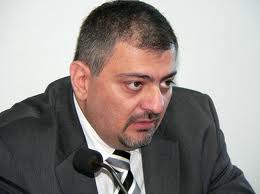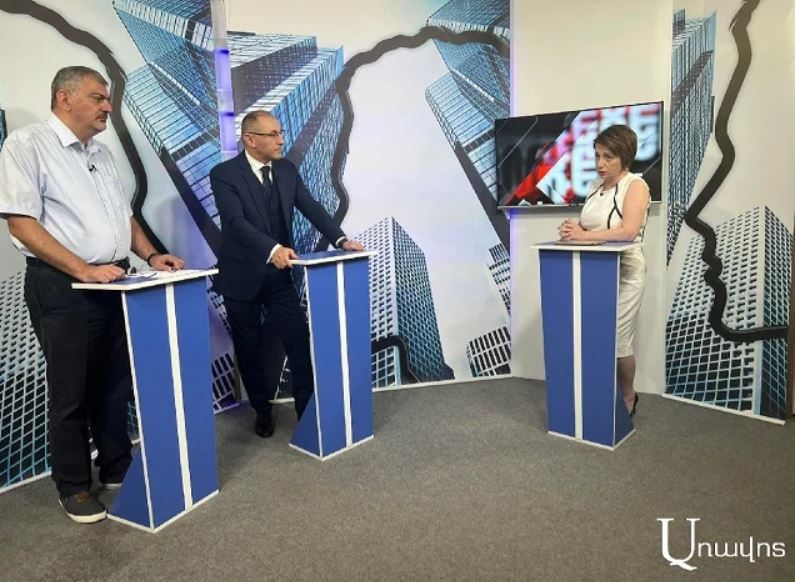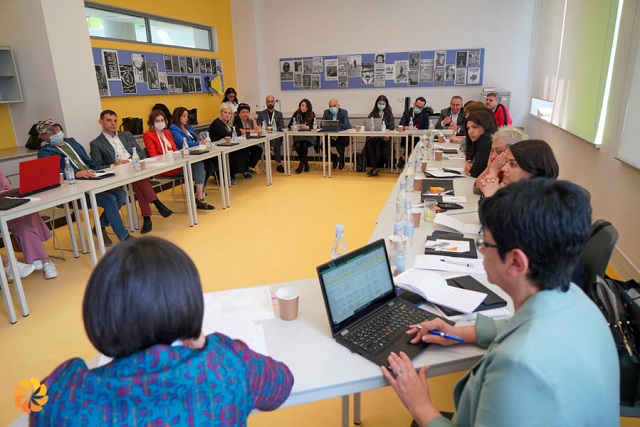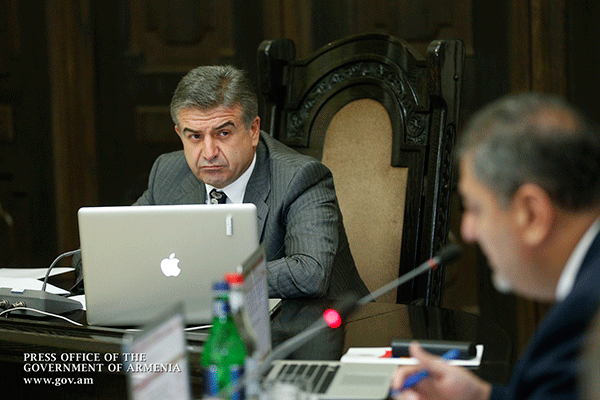
Gabrielyan what percentage the shadow economy accounted for in the Armenian economy.
“The shadow economy accounts for 30%-40% of our economy and we should fight it,” the chief financier of the country admitted. In response to our questions then why there was no line in the Cabinet’s new program about that, it was not said what fight would be waged against the shadow economy and instead it was mentioned that they would create equal conditions for all businessmen, whether the Cabinet had shown a discriminative attitude before that, Mr. Gabrielyan said, “We didn’t mention the shadow economy itself, but there is an article on tax revenues, according to which everyone should pay and everyone should be treated equally. As for the poor practice, we have always had corruption and now we say that we will do our best, in order that businessmen work properly. According to your logic, one should not raise any problem as a Cabinet. If there are problems, we should say that we must fight them, time will tell how successfully.”
Let us note that the opponents, harshly criticizing the new program, also pointed out that it was rather shaky, the program lacked mechanisms and concrete indexes, only two lines were written about big projects like the Iran-Armenia railroad, the North-South road and the construction of the nuclear power plant.
Read also
In Vache Gabrielyan’s words, “The Cabinet never submits a detailed program with graphs, index by index, it is just impossible and the Constitution doesn’t provide for that. In reality, the program mechanisms after the Cabinet is appointed are the following whether you win the confidence vote or not. It doesn’t stipulate that there should be a detailed program of actions at all, because such an extent of concreteness is impossible, such an extent of concreteness was employed by the Soviet Union. There was a big system of plans at that time – the most important one was the 5-year plan and it had multiple volumes and there was one separate volume for production among those volumes – what one must produce – one separate volume for provision etc. All those were specific, but the problem with that plan was that they were clarified all the time. Logically, we only point out the directions, in which we will work.” In response to a question of www.aravot.am whether they would specify where the construction of the Iran-Armenia railway would reach within the next 5 years, the Minister of Finance said, “Such projects usually pass a long negotiation and preparation stage as a rule, after which it will be clear. We are now engaged in active negotiations on implementing those projects. The issue is not taken off the agenda and active work is done in that direction, but I think it will not be right to unequivocally say that we will start the construction on such-and-such a day. It is planned to continue work within 5 years and to carry the negotiations through.”
In response to our observation that the distrust of the opponents stemmed from the fact that the previous program of the Cabinet had not been successfully implemented – the poverty had increased instead of reducing, the promised jobs had not been created, the emigration had increased – Mr. Gabrielyan said the following, “Firstly let us assert that the government has not managed to do everything, the government also has drawbacks, but given all that one should not forget that we went through a crisis.” We inquired of Mr. Gabrielyan how long would the government officials continue using the crisis as a buoy, “I would like the crisis to never be there. There is a saying that if there hadn’t been the crisis, we would have invented one. Therefore, if I said that the government had not made any mistakes, the government was impeccable, it would not be accurate, the government had drawbacks, it could have done more, I don’t claim that a group of impeccable men came and found themselves in this crisis, but I assure you that if you talk to anyone abroad and say that these developments are not important, no one will understand, because I tell you let us look at it in comparison. E.g., our banking system didn’t suffer damages as in many countries like ours.” In response to a question of www.aravot.am whether increase in poverty, lack of jobs, emigration, all these were also conditional on the crisis, Vache Gabrielyan said, “All that is conditional on the economic downturn. The only year since 1945, during which there was a global economic downturn, was year 2009. There was an increase in poverty in the US, France and other countries. When one has an economic downturn, the rest stem from it. When one has an economic downturn, it is accompanied by emigration and increase in poverty.”
Armen Martirosyan, a member of the Heritage Party said about the Cabinet’s program that the new program would not be implemented, not because it couldn’t be implemented, but because there weren’t respective specialists in the Cabinet that would be able to implement all that. In response to this, Mr. Gabrielyan said, “I think it is a political assessment, I would be very surprised, if an opposition party made a different assessment. I strongly doubt that, let’s say, the Heritage Party or any other party has the best people in Armenia in its ranks and they will come and implement a better program.”
As for the concerns of the opposition MPs about the rise of external debt that it has already reached 6.5 billion, the Minister of Finance assured that it was controllable, “In regard to the external debt, I don’t think that there is any problem at all. The plan of paying off the external debt is already drawn up. We approve a mid-term expense framework every year. The heaviest burden of paying off our debt is placed on years 2013-2014 and the Cabinet already has an approved program for those years.”
Lusine BUDAGHYAN




























































